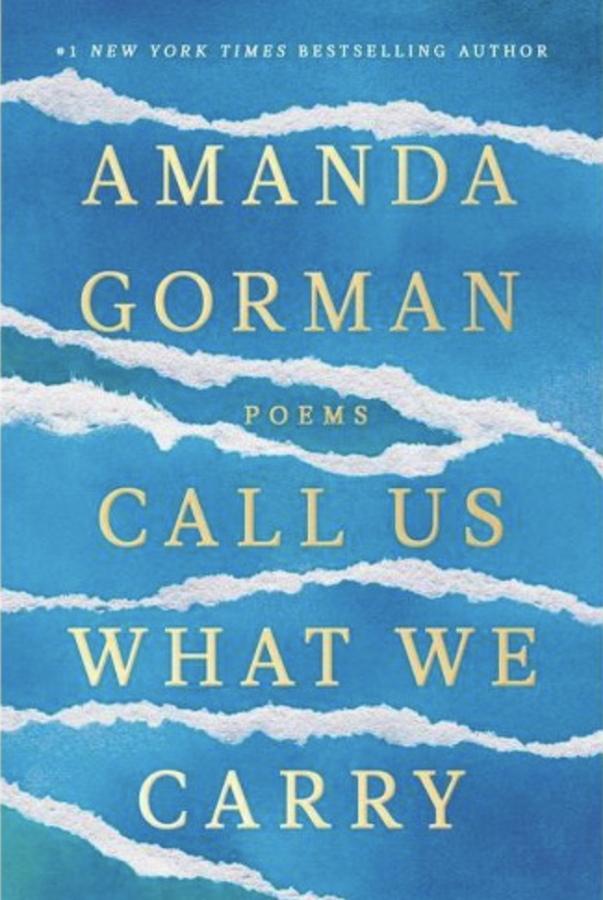Call Us What We Carry: Processing the Present through Poetry
March 1, 2022
The first time I encountered the poetry of Amanda Gorman was the same day I, and many of my fellow Americans, first heard her name: Inauguration Day 2021. From the start of the poem she recited that day, “The Hill We Climb,” I was inspired by her simple lyricism, becoming more hopeful for and confident in the future with each stanza. From that day, I was eager to obtain more of her work but learned that her first collection would not be published until late 2021. This collection was worth the wait. Call Us What We Carry is an elegy to a lost year, working as record-keeping and artistic expression simultaneously. Regardless of how you feel about the genre, this collection is necessary reading for all.
Call Us What We Carry guides readers through seven chapters based around motifs such as “Earth Eyes” or “Atonement.” Within this structure, Gorman plays with both form and meaning. While I think everyone should go into this book knowing as little as possible, one of the most visually striking pieces asks readers to turn the book sideways to read a poem in the shape of a whale. Such forms, which never feel gimmicky, encourage readers to think differently about the content.
Within the structure itself, of course, lie the themes that Gorman tackles throughout the work. Almost all of the poems are meant to be viewed through the lens of the past (almost) two years. Touching on the isolation and suffering so many have endured, these pieces invite the reader to consider both the immediate and long-term effects of COVID. She also further develops themes introduced in “The Hill We Climb.” The poignant chapter “Fury and Faith” tackles social justice head-on, expressing the anguish and hardship that so many have experienced. Every line of Gorman’s concise verse carries weight. The final chapter unifies the work as a whole with a reprise of Gorman’s now famous inaugural poem and a thoughtful message for our future that reinvigorated my faith in our country.
The poems themselves are tight: light on words but heavy with meaning. Some of the standout poems include “Hephaestus,” “Alarum,” and “Resolute.” “Hephaestus” centers on the necessity of reflection and introspection in the face of hardship, exploring how the challenges we face can help us find who we truly are. “Alarum” laments our dissipating collective connection and warns us that our divides (between us and other people, between us and the world) are slowly driving us towards ruin. As Gorman writes, “Extinction is a chorus / of quiet punching / that same note.” “Resolute” tackles the ability of poetry to illuminate the present and give us joy for the future. Taking its rightful place towards the end of the collection, it serves as a moment of respite at the conclusion of a long journey that ends on a hopeful note. And while these poems may be among my personal favorites, there was not a single poem I read in this collection that lost my interest for a second.
If you want a better understanding of where the American psyche stands today, how the pandemic changed the world, or how we can move forward from all of this, then I truly cannot recommend a better source than Call Us What We Carry to answer all of these questions and more. The creative structure of the work as a whole, the exigent themes, and the beautiful poems themselves all demand a wider readership for this work. You will absolutely be able to appreciate this fantastic work even if poetry is not of particular interest to you, and you will enjoy the work even more if it is. Call Us What We Carry is simply the best poetry I have read in years.







